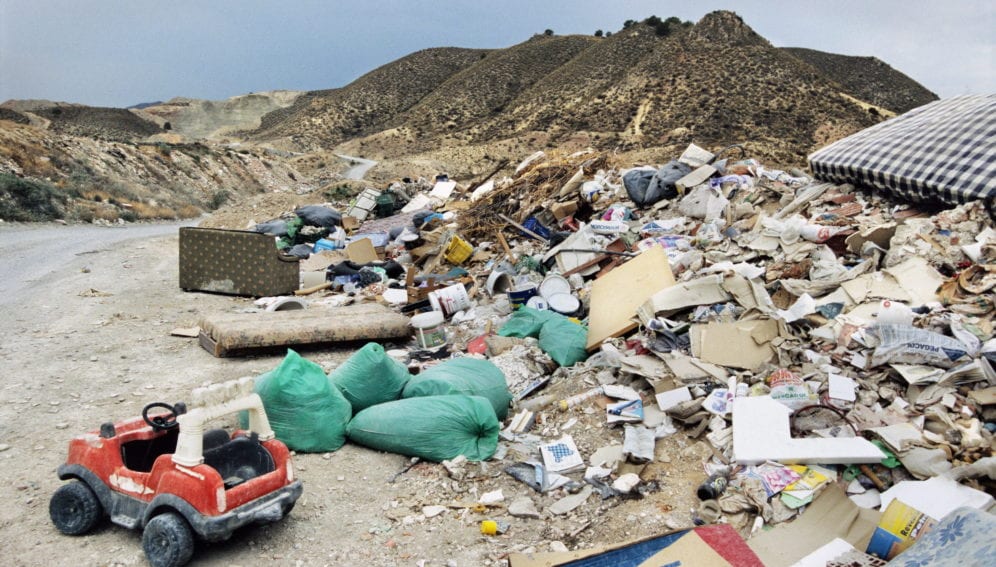By: Gilbert Nakweya
Send to a friend
The details you provide on this page will not be used to send unsolicited email, and will not be sold to a 3rd party. See privacy policy.
[NAIROBI] Environmental degradation due to factors such as urbanisation, rapid population growth, economic development and transportation, especially in the global south, could have serious consequences on people’s health, warns a UN report.
The report cautions that cities and regions in Africa, Asia and the Middle East could see millions of premature deaths by 2050, while pollutants in freshwater systems could lead to anti-microbial resistance becoming a major cause of death globally.
Scientists and experts who compiled the sixth Global Environmental Outlook report released at the UN Environment Assembly (11-15 March) in Nairobi are calling for urgent action to reduce land degradation, air pollution, and biodiversity loss, and improve climate change mitigation, water management and disaster prevention and response.
“The planet is increasingly becoming unhealthy and the global south is the most affected, especially by air pollution”
Joyeeta Gupta, Amsterdam Institute for Social Science Research of the University of Amsterdam
“These need robust policies that are effective and incorporate solutions such as improved resource management,” says Paul Ekins, co-chair of the report’s panel.
Ekins says a stronger political will to implement environmentally friendly policies such as renewable energy use is key to preserving public health.
The report published by the UN Environment Programme asks nations to limit the potential negative effects of population growth, economic development and climate change.
According to the report by 250 scientists and experts from more than 70 countries, population growth will be highest in very poor countries with inequities in access to education and sexual reproductive rights. Countries with a low carbon footprint per capita will also experience increased population growth.
The report published by the UN Environment Programme asks nations to limit the potential negative sustainability drivers of population, economic development and climate change.
According to the report by 250 scientists and experts from over 70 countries globally, population growth will be highest in very poor countries and have inequities in access to education and sexual reproductive rights. Countries with low carbon footprint per capita will also experience increased population growth.
“It is therefore imperative to attend to how key population dynamics such as infertility, ageing populations and gender inequality interact and impact on environmental sustainability,” advises the report.
Almost 90 per cent of urbanisation, the report states, will take place in Africa and Asia but serious environmental challenges in these areas, such as flooding, access to clean water and sanitation, remain unsolved, putting health at risk.
However, the report’s authors say that rapid urbanisation, if well-planned and managed, could be an opportunity to reduce greenhouse gas emissions through proper flood prevention and waste management strategies.
Activities associated with economic development, such as trading of goods internationally, they say account for more than 30 per cent of carbon emissions globally.
“The planet is increasingly becoming unhealthy and the global south is the most affected, especially by air pollution,” says Joyeeta Gupta, co-chair of the report and a professor of environment and development in the global south at the Amsterdam Institute for Social Science Research of the University of Amsterdam.
Gupta says health is a cross-cutting issue that needs action in many areas, especially relating to urbanisation and rapid population growth in Africa and Asia.
Food waste management and reduction should be upscaled as failure to do so could be responsible for nine per cent of greenhouse gas emissions, she tells SciDev.Net.
She adds that missing environmental data linked to health should be addressed to aid decision making. About 100,000 chemicals in use today, Gupta says, have not been analysed in terms of impacts on the environment yet could pose a risk to health.
The UN Environment’s acting executive director, Joyce Msuya, stresses the need to ensure proper waste management and access to clean energy for all.
“If we invest in the health of the planet, we prioritise the health of the people,” says Msuya, adding that countries’ sustainable development models should address key environmental issues such as climate change, clean energy, food waste, urbanisation and transport.Babajide Alo, professor of chemistry and an environmental consultant from University of Lagos Consultancy Services, calls for increased interaction among scientists, researchers and policymakers so that research data can inform decision making and reduce the burden of disease in Africa.
“Africa seems to be lagging behind in waste management, especially chemical waste which poses risks to the health of people,” Alo adds.
This piece was produced by SciDev.Net’s Sub-Saharan Africa English desk.














